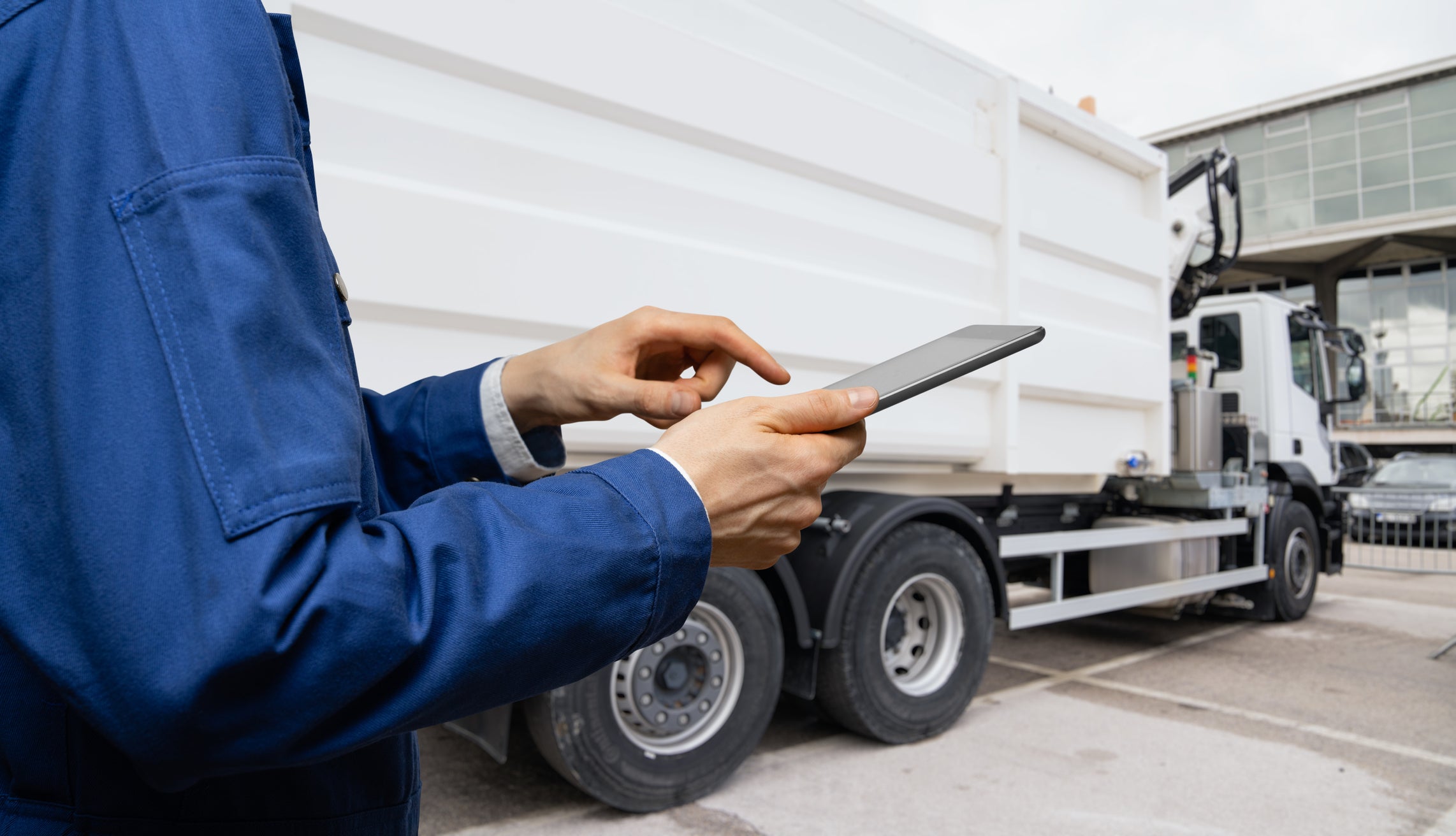Technology is driving change for fleets, supply chains and the construction industry
THE ARTICLES ON THESE PAGES ARE PRODUCED BY BUSINESS REPORTER, WHICH TAKES SOLE RESPONSIBILITY FOR THE CONTENTS

Samsara is a Business Reporter client.
The world of physical operations is changing fast. Philip van der Wilt, SVP and GM, EMEA at Samsara, explains how the rapid adoption of technology is transforming the industry
Technology is interlinked with the future of work. The digitisation of almost every sector on the planet – from retail and government services to banking and healthcare – means the world of work is on a seemingly permanent cycle of technology-fuelled transformation.
Spare a thought, then, for those who work in the world of physical operations, including vehicle-based industries such as transport, construction, logistics and fleet services.
For the most part, the technologies many office-based workers take for granted have passed them by as they continue to drive the trucks, lorries and vans that keep the wheels of the global economy turning.
But all that is changing. Shift through the gears to today and business leaders are adopting cloud-based internet of things (IoT) technology to unify fleets and their workforce so that their entire operation can be viewed via a single screen.
And as the world of physical operations embraces more and more technology, not only do businesses become safer, more efficient and more sustainable, but those that work in this sector are seeing their jobs change for the better.
Digital transformation is gathering pace
Paper-based systems that were the foundation of physical operations – everything from delivery notes to route planning – can now be done via an integrated cloud-based platform. For drivers, that means ditching their clipboards and maps and replacing them with a smartphone or tablet to carry out everyday tasks.
Vehicles are being fitted with dashcams powered by artificial intelligence (AI) that can detect safety hazards – such as distracted driving or tailgating – to catch risky behaviour early and ensure drivers return home safely at the end of a shift.
AI is also being used to detect when physical assets, such as construction machinery or shipping containers, are stolen, or moved without authority, providing real-time assurance for operations managers. These monitoring technologies are drastically improving theft prevention and reducing manual workloads for those responsible for managing inventory.
As the industry embraces technology, the nature of work will change
Wherever you look, seismic changes are happening in the world of physical operations. And it’s all being driven by technology.
This year’s State of Connected Operations report by Samsara revealed that by 2025, one in six operations employees is predicted to be doing jobs that don’t exist today.
Even to those who don’t work in the sector, it indicates how quickly technologies such as automation and AI are shaping the future workforce.
But this isn’t just about bringing technology to a sector that has been underserved by tech.
Businesses recognise that technology helps in the recruitment and retention of staff. Drivers and other essential workers are choosing to work for companies that embrace technology. Why? Because technology removes the tedium of manual tasks and processes increasing job satisfaction.
That, though, is just the start. Automation is increasingly being seen as the future of physical operations. Does this mean fleets of self-driving vans, lorries and buses are just around the corner? Maybe. But not just yet.
Instead, they’re focusing on how technology can deliver change across their business.
Automation and AI are fuelling different skills in the workplace
By 2024, 91 per cent of operations leaders say they will be leveraging automation – everything from workflows to remotely controlled vehicles – to modernise their operations.
Four in ten (42 per cent) are either testing or adopting autonomous technology in 2023, with half (51 per cent) already using – or planning to use – autonomous vehicles and equipment.
Being a professional driver or overseeing heavy construction machinery is already a skilled job. The introduction of more and more technology means the know how needed to carry out tasks is evolving, requiring whole new skillsets.
In the UK, for example, Lanes Group plc – the leading wastewater utility solutions provider and largest independent drainage specialist in the UK – is now using virtual reality (VR) to train its staff.
Even before new staff go out on the road, they use simulators and VR goggles so they know exactly what it’s like to be in a trench working on a broken pipe. Not only can they see what day-to-day operations are like, they can learn about safety procedures without getting their boots dirty.
To learn more about how the rapid adoption of technology is transforming the workplace, visit samsara.com.
Subscribe to Independent Premium to bookmark this article
Want to bookmark your favourite articles and stories to read or reference later? Start your Independent Premium subscription today.